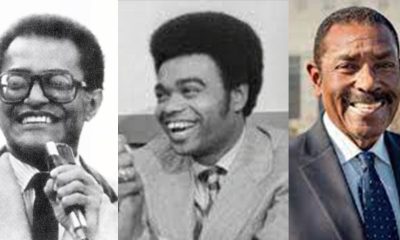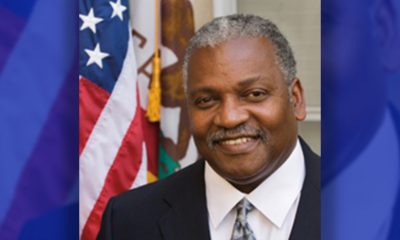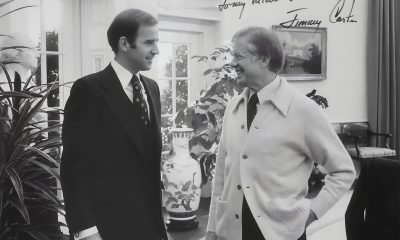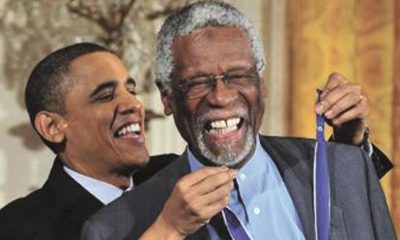In Memoriam
Remembering Ron Dellums: A Leader for These Times
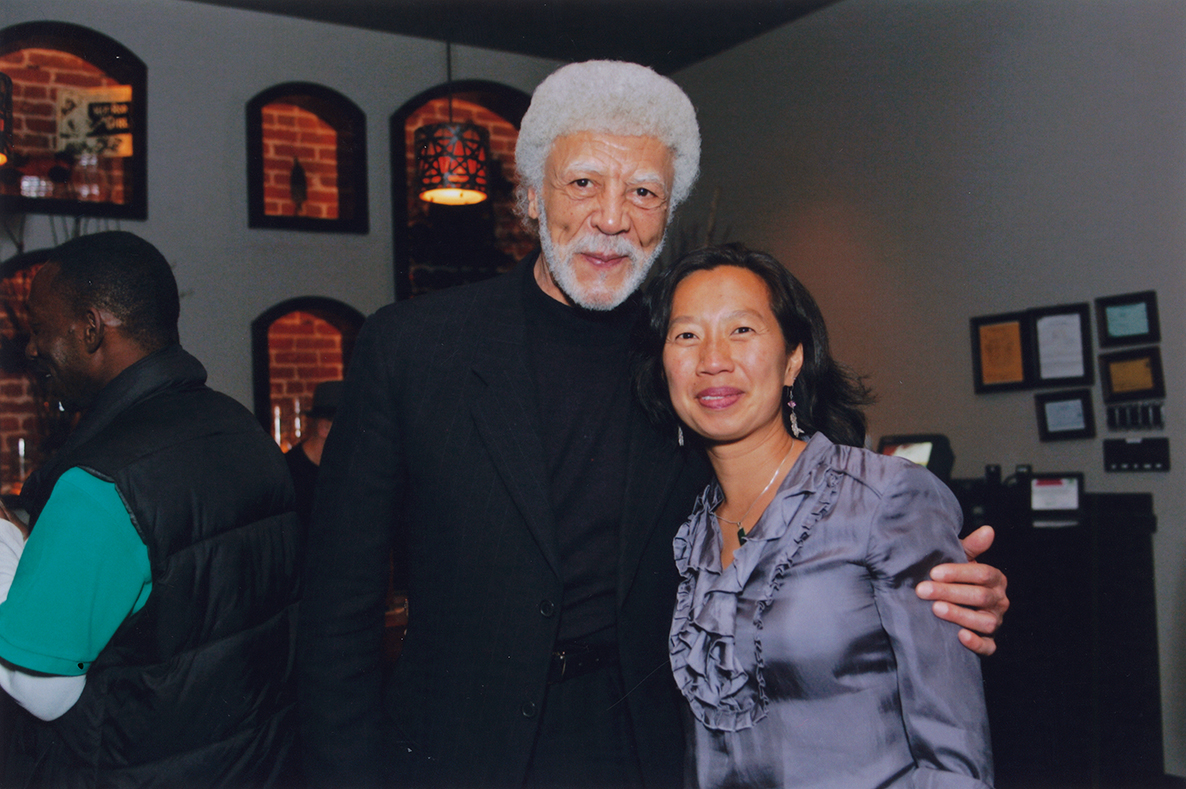
As we approach the second anniversary of Ron Dellums’ transition, I’ve been thinking a lot about Ron. The New York Times article about Ron’s life framed him as being 20 years ahead of his time, be it leading on South Africa anti-apartheid, national security, climate change, HIV/AIDs.
Many have spoken about Ron’s brilliant mind, his great courage, and his compassion for all. Today, I want to talk about one of Ron’s magic powers and my relationship with him in order to uplift Black and Asian solidarity. Ron had an uncanny superpower of seeing the inside of people, our true selves, our light. And in that seeing, he would bring out the best in us. A shy person would speak with eloquence and confidence. A grumpy person would still emanate light and joy. Ron’s magic power of seeing the best in people, lifting them up to their highest potential transformed my own life.
Ron Dellums changed my life even before I met him. In my last year of law school, after years of struggle, I had a job offer from a big corporate law firm. My mother, an immigrant single mom who was denied a college education and sacrificed so much for her children, was so proud of me. Despite this, I couldn’t help but feel my soul leave my body on the way to work. In the midst of my inner turmoil, I came across an article about Ron Dellums where he spoke about the times of loneliness when he was following his conscience. In that instance, I knew then that I wanted to be like Ron Dellums. I wanted to be a person of courage, a person of conviction, a person who felt so passionate about justice. Reading Ron’s words gave me the inner strength to pursue my dreams of justice.
As fate would have it, years later, serendipity struck and I met Ron Dellums, who changed my life again, this time in person. I was serving as the attorney for an anti-displacement coalition during the Jerry Brown years in Oakland when fighting against displacement was a very lonely battle. Ron flew across the country to come home and help us; I was assigned by the coalition to serve as his liaison. Ron’s stance with the coalition turned the political tides and ultimately compelled City officials to address displacement impacts.
At a personal level, I experienced Ron’s magic powers at work. During a heated meeting with the angry and privileged white developers who saw my role as a personal threat, Ron not only intervened but uplifted my leadership. Ron’s grace towards me enabled me to touch my own grace and rise above the attacks, rather than being taken down.
Later as mayor of Oakland, Ron and his wife Cynthia asked me along with others to join their City Administration. I wanted to help them but was anxious about going into the inside of City Hall, a place I perceived as a den of back-stabbing and petty politics. Throughout the years, others have encouraged me to run for office or take on high profile jobs. I always declined because I held fear of holding power. I was afraid of going into the proverbial monster’s cave and becoming the monster.
Working at the City for Ron transformed my perspective. I saw firsthand the power that government has to change the systems and structures of oppression, to heal the past injustices. For example, despite the Great Recession, under Ron’s leadership, the Dellums Administration reduced homicides by 40%, created the national model Green Jobs Corp to fight poverty and climate change, and invested in re-entry jobs.
Because of Ron’s belief and trust in me and his other staff, I witnessed my own ability to hold power with honor, love, and integrity. My transformation, of becoming into myself, of breaking bonds of racist and sexist conditioning that told me that I was not worthy, occurred because of Ron Dellums’ magic.
Today with so much at stake, we share many of Ron’s inspiring talks and images at The Dellums Institute for Social Justice.
May Ron Dellums’ magic power to bring out our best selves live on in you.
#NNPA BlackPress
IN MEMORIAM: Eddie Abrams, Community Historian
Eddie leaves to mourn Rose, his wife of 60 years, four children, 14 grandchildren and one great-grandchild, and a host of relatives and friends.
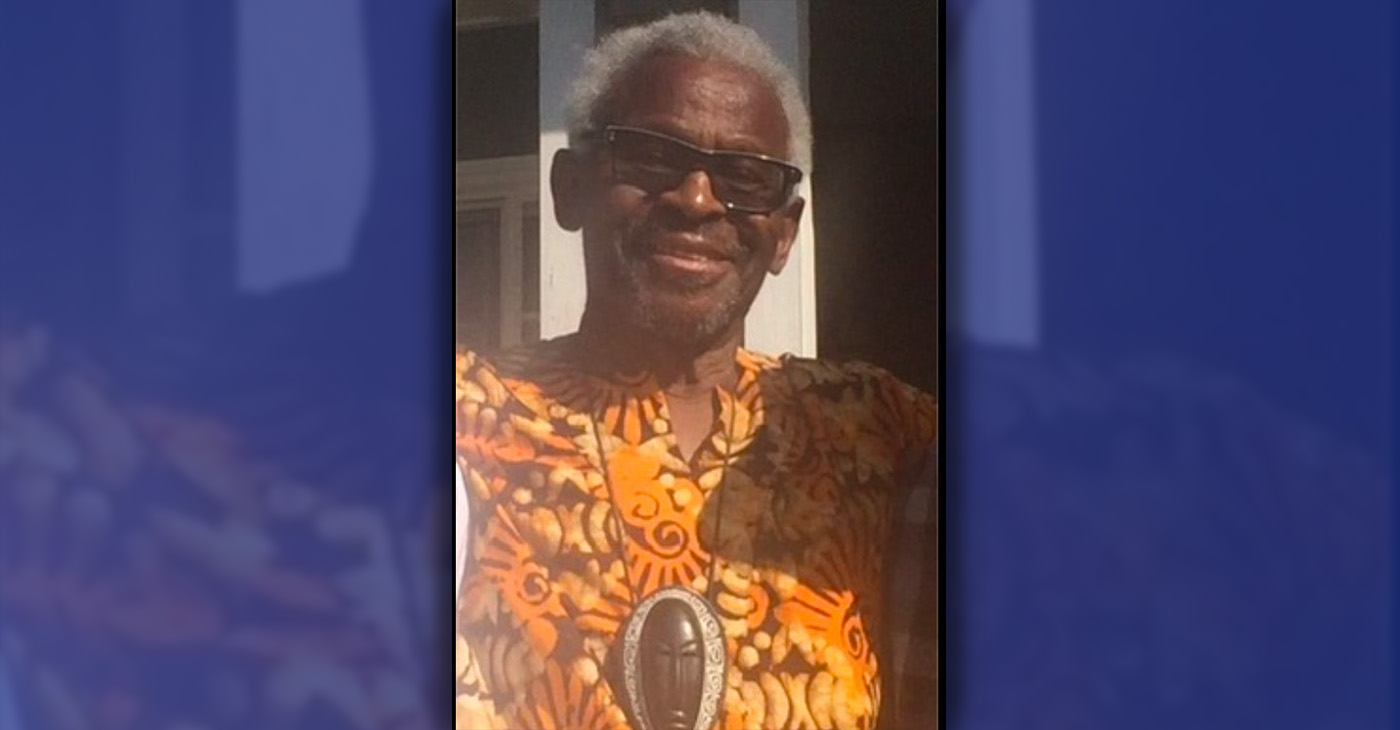
Special to the Post
Mrs. Rose Abrams and family is mourning the passing of Edward Earl Abrams. Mr. Abrams passed on Monday, Jan. 6. The Oakland Community knew him as Eddie Abrams, the man with a video camera in his hands, always prepared to capture history as it was being made.
Eddie was born in Hub, Mississippi, and came to Oakland, CA in 1946 at the age of 15. He attended McClymonds High School and was also a member of the Army Reserve. Although Eddie did not play sports, he could give you history and stats on all the great ball players who came through McClymonds’ doors.
In 1950, Eddie worked at the Naval Air Station as a warehouse supervisor until he retired in 1985. After his retirement, he organized and provided leadership to the Family Resource Community Center known by many as The House of Unity. He also hosted a show with Soul Beat TV titled “O.U.R.S. Hour,” for One United Resource System.
The mission was to provide Black empowerment and unity by bringing Black leaders to speak. Comedian/Activist Dick Gregory, educators John Henry Clark, and Frances Cress Welsing were often invited guests.
The House of Unity was a place for local leaders in Oakland to also speak to provide encouragement to students, seniors, and its residents. Eddie loved his community and wanted to provide it with as much history and education as possible through his hand-held video camera.
Eddie leaves to mourn Rose, his wife of 60 years, four children, 14 grandchildren and one great-grandchild, and a host of relatives and friends.
Funeral services will be held Monday, Jan. 20 at Beth Eden Baptist Church at 1183 Tenth St. Oakland, CA at 11 a.m. For more information, please contact Kim Abrams via text at 510-757-6366.
Activism
U.S. Rep. Barbara Lee Remembers Jimmy Carter’s Sunday School Lessons
Barbara Lee said she still treasures her CD Sunday school lessons that she participated in as a visitor to Jimmy Carter’s Maranatha Baptist Church in Plains, Georgia. She told The Post that she attended gospel concerts at the Carter White House as the staff aide for the late Congressman Ron Dellums.
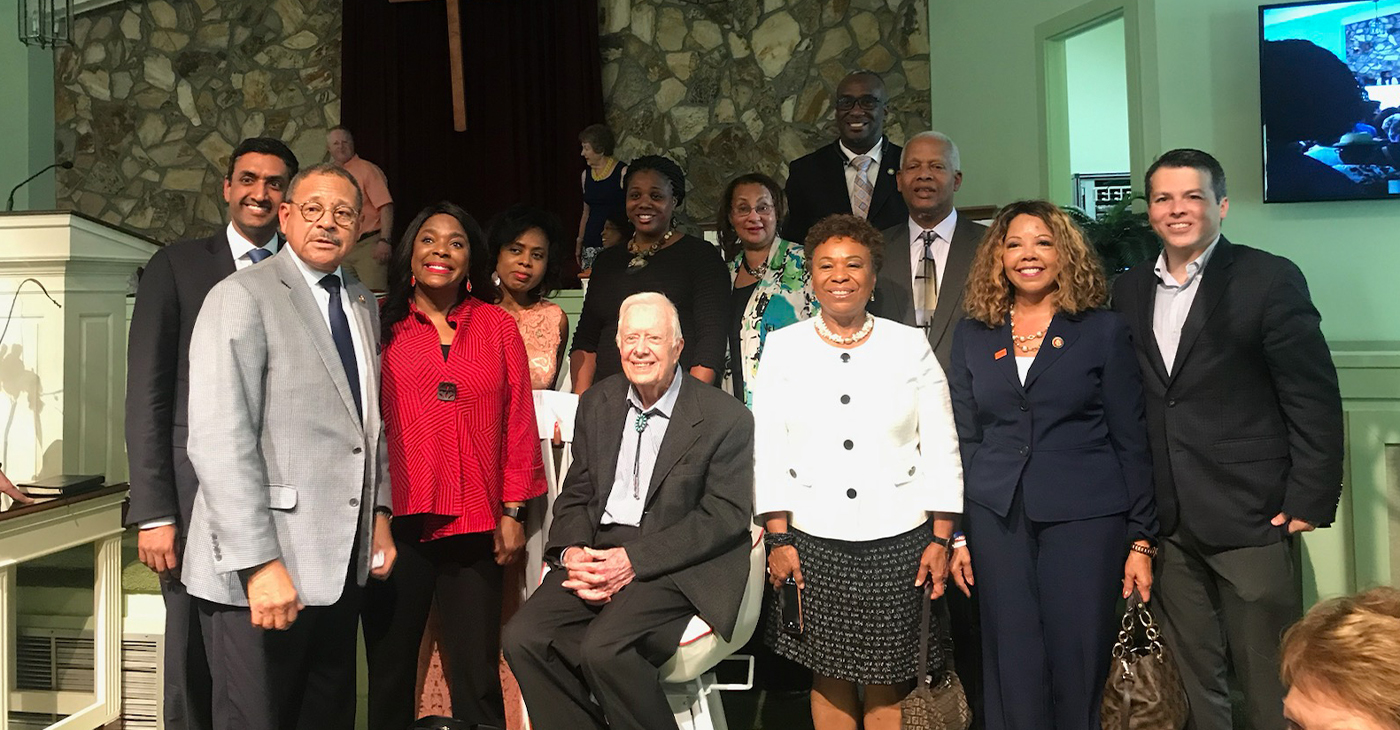
By Paul Cobb
“I’m deeply saddened to hear of the passing of President Jimmy Carter,” said Congresswoman Barbara Lee. “President Carter displayed a lifelong commitment to global peace, justice, and human rights. He inspired me and countless others.”
“I send my condolences to his family, his loved ones, and all who loved him. May he now Rest in Peace with his wife, Rosalynn,”. Lee continued.
Barbara Lee said she still treasures her CD Sunday school lessons that she participated in as a visitor to Jimmy Carter’s Maranatha Baptist Church in Plains, Georgia. She told The Post that she attended gospel concerts at the Carter White House as the staff aide for the late Congressman Ron Dellums.
“I also invited congressional staff to visit his Sunday school teachings. He taught us lessons on how to apply our faith to our policy work in government and in our respective communities. He practiced what he preached and represented a change in social and racial advancements.”
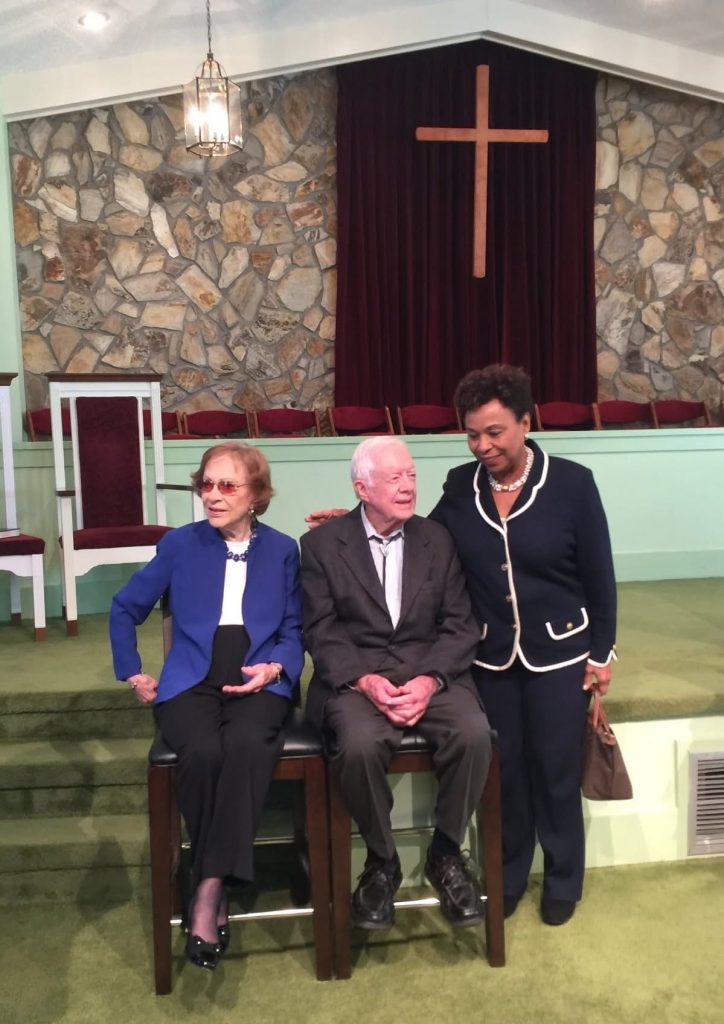
Barbara Lee with President Carter and First Lady Rosalyn. Lee has treasured the Carters and notes of his Sunday School Bible lessons through the years. Photos courtesy of Rep. Lee’s office.
Activism
IN MEMORIAM: Jimmy Carter, 39th President and Global Humanitarian, Dies at 100
Despite serving just one term, Carter’s presidency is remembered by historians as one of the most consequential. He brokered the Camp David Accords between Egypt and Israel in 1978, a milestone in Middle East peace efforts. Carter prioritized human rights in U.S. foreign policy, advanced environmental conservation, and created the Departments of Energy and Education.
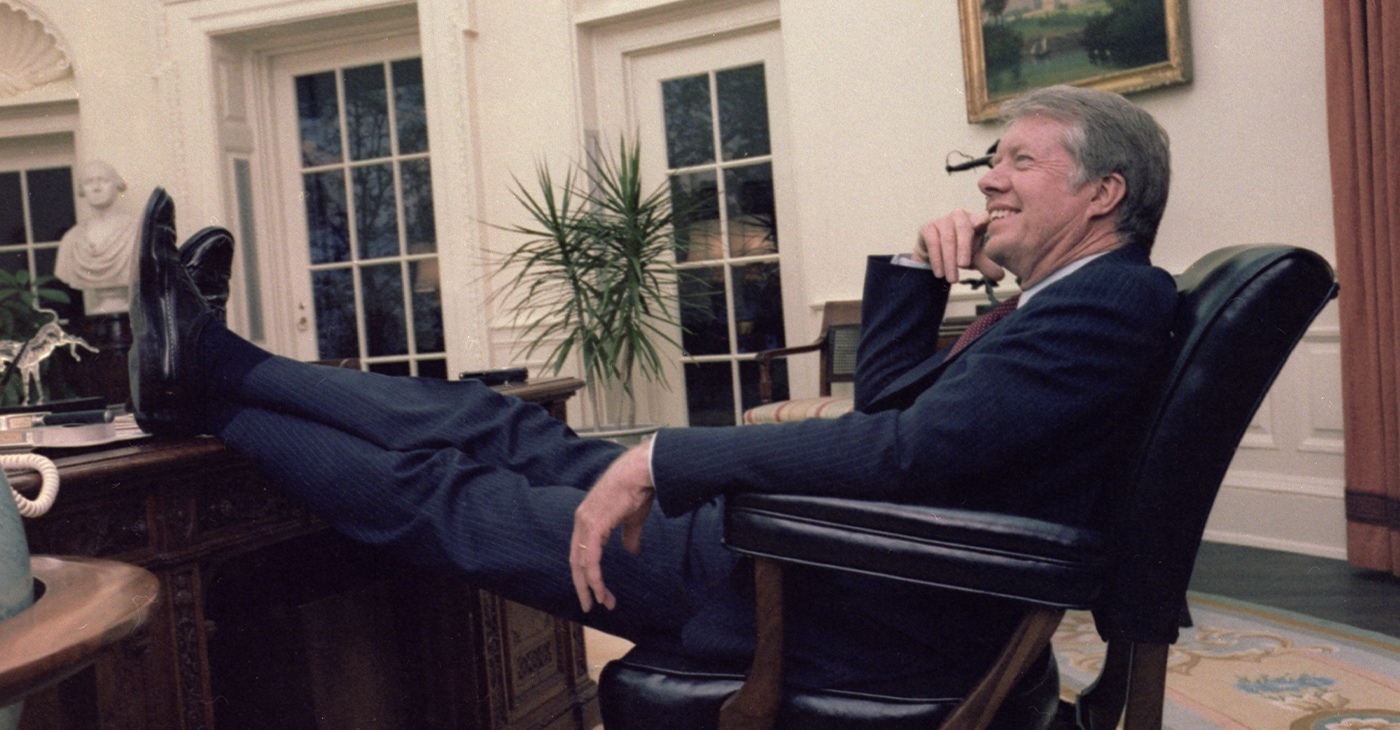
By Stacy M. Brown, NNPA Newswire
James “Jimmy” Carter, the peanut farmer from Plains, Georgia, who became the 39th president of the United States and later redefined the role of an ex-president through decades of humanitarian work, died Sunday at his home. He was 100.
His son, James E. Carter III, known as ‘Chip,’ confirmed the death but provided no immediate cause. Carter had been in hospice care since February 2023 after battling an aggressive form of melanoma that spread to his brain and liver.
Carter’s wife, Rosalynn, with whom he shared 77 years of marriage—the longest of any presidential couple—died on Nov. 19, 2023, at 96. The couple’s final years were marked by their enduring love, and Carter’s last public appearance was at Rosalynn’s funeral, where he sat in the front row in a wheelchair.
Carter’s official state funeral will take place on Jan. 9 in Washington, D.C., and President Joe Biden, who will deliver the eulogy, declared the date a National Day of Mourning.
“America and the world lost an extraordinary leader, statesman and humanitarian,” President Joe Biden said in a statement issued by the White House on Sunday. “Over six decades, we had the honor of calling Jimmy Carter a dear friend.
“… With his compassion and moral clarity, he worked to eradicate disease, forge peace, advance civil rights and human rights, promote free and fair elections, house the homeless, and always advocate for the least among us. He saved, lifted, and changed the lives of people all across the globe. … To the entire Carter family, we send our gratitude for sharing them with America and the world,” Biden continued.
Carter’s legacy will also be celebrated in Atlanta before the national events and will be followed by a private interment in Carter’s hometown of Plains, Georgia, according to The Carter Center, though final arrangements are still underway.
Vice President Kamala Harris’ issued an official statement as well: President Jimmy Carter was guided by a deep and abiding faith — in God, in America, and in humanity.
Jimmy Carter’s life is a testament to the power of service — as a Lieutenant in the United States Navy, the 76th Governor of Georgia, and the 39th President of the United States. He reminded our nation and the world that there is strength in decency and compassion.
. “His life and legacy continue to inspire me — and will inspire generations to come.”
Many of California’s state and local elected officials also remembered Carter.
On X, formerly known as Twitter, California Senator Alex Padilla said “Jimmy Carter was a clean energy champion, a staunch defender of democracy, and a fundamentally decent person. His lifelong commitment to service led us through turbulent moments, and he leaves behind a shining example of how to better treat one another.”
U.S. Speaker of the House Emeritus Nancy Pelosi said “As President, his work to restore integrity to the political arena during a difficult chapter in our history was a testament to his firm faith in the sanctity of the public good, which he always placed above his own. After leaving the White House, he carried on his service – leading perhaps the most impactful post-presidency in history.
Fox News reported that San Francisco Mayor London Breed said that the city was lowering the American flag to half-staff at City Hall for the next 30 days following Carter’s death. “We join the nation in mourning his loss and celebrating the enduring legacy of a truly remarkable leader,” she said. She also praised his work aimed at “building a more just and compassionate future.”
“Jimmy Carter was a beacon of justice and sevice – from desegregating schools to championing civil rights and building homes with Habitat for Humanity,” said Lateefah Simon, newly elected representative of the Bay Area’s 12th Congressional district. “He lived his faith and fought for dignity every day. May his memory be a blessing. Rest in power.”
Former Berkeley mayor and newly elected State Senator Jesse Arreguín said that “Jimmy Carter was a shining example of what it means to be a public servant,” and encouraged others to “build upon his legacy of advancing human rights, social justice, and peace.”
California Controller Malia Cohen told the San Francisco Chronicle “Carter’s commitment to humanitarian issues and social justice inspired her ‘to value kindness and empathy in my own life.’
“‘His legacy encourages me to strive for a more just and compassionate world, reminding me that service to others is one of the highest callings we can pursue,” Cohen said in a statement.
Governor Gavin Newsom’s statement said in part: “President Carter was a man of rare character – whose beliefs ran true and ran deep, whose moral compass never wavered. He saw the common humanity in all of us, building bridges between people of different faiths and factions abroad while working to meet the needs of those at home. Despite daunting challenges and trying times, his bright energy and spirit never faltered.”
Born in Plains on Oct. 1, 1924, Carter grew up on a farm, served in the U.S. Navy, and rose to prominence as Georgia’s governor from 1971 to 1975. He was elected president in 1976, becoming the first man from the Deep South since 1837. The victory made Carter the only Democrat to hold the office between Lyndon B. Johnson and Bill Clinton.
Carter’s presidency, defined by ambitious domestic and foreign policy initiatives, faced formidable challenges. During Carter’s presidency, America struggled with ‘stagflation,’ an energy crisis, and international turmoil.
The 1979 Iranian hostage crisis and the failed rescue mission that followed, combined with economic woes and a Soviet invasion of Afghanistan, led to his overwhelming defeat in the 1980 election by Ronald Reagan.
Despite serving just one term, Carter’s presidency is remembered by historians as one of the most consequential. He brokered the Camp David Accords between Egypt and Israel in 1978, a milestone in Middle East peace efforts. Carter prioritized human rights in U.S. foreign policy, advanced environmental conservation, and created the Departments of Energy and Education.
His vision for alternative energy led to installing solar panels on the White House, which he called “a small part of one of the greatest and most exciting adventures ever undertaken by the American people.”
In his biography “His Very Best: Jimmy Carter, a Life,” Jonathan Alter described Carter as “perhaps the most misunderstood president in American history.” In contrast, Kai Bird’s “The Outlier: The Unfinished Presidency of Jimmy Carter” highlighted his moral conviction in tackling issues others avoided, even at political cost.
After leaving the White House, Carter devoted himself to humanitarian work, transforming the role of former presidents. Through the Carter Center, founded with Rosalynn in 1982, he worked to promote democracy, monitor elections, and combat diseases like Guinea worm. The Center has monitored 115 elections in 40 countries and played a key role in nearly eradicating Guinea worm disease.
Carter and Rosalynn’s decades-long partnership with Habitat for Humanity further exemplified their commitment to service. Wearing tool belts and working alongside volunteers, they helped build or renovate more than 4,000 homes in 14 countries.
In 2002, Carter received the Nobel Peace Prize for his “decades of untiring effort to find peaceful solutions to international conflicts, to advance democracy and human rights, and to promote economic and social development.” Gunnar Berge, a Nobel committee member, called Carter “the best ex-president the country ever had.”
Carter’s post-presidency also saw moments of controversy. His 2006 book “Palestine: Peace Not Apartheid” drew criticism for its comparison of Israeli policies to South African apartheid. Yet, even in contentious circumstances, his tireless advocacy for peace earned him widespread respect.
“During his presidency, Jimmy Carter advocated to have Medicare cover all Americans. After his presidency, he continued humanitarian works that everyone, regardless of political affiliation, should respect,” said former Congresswoman Nina Turner.
Carter maintained a modest lifestyle, choosing not to capitalize on his presidency. He and Rosalynn lived in the same Plains home they built in 1961, and Carter often said he wanted their gravesite in Plains to benefit the local economy through tourism.
In their later years, the Carters celebrated milestones with family and friends, including their 75th wedding anniversary in 2021. Guests included civil rights leader Andrew Young, country music stars Garth Brooks and Trisha Yearwood, and former President Bill Clinton.
Carter is survived by his four children, numerous grandchildren and great-grandchildren, and a legacy of public service that transformed lives around the globe. He will be buried next to Rosalynn under a willow tree near a pond he helped dig in Plains, where his journey began and ends.
The San Francisco Chronicle, Los Angeles Times, New York Post, X, CNN, The Mercury News, and NBC News contributed to this report.
-

 #NNPA BlackPress4 weeks ago
#NNPA BlackPress4 weeks agoTarget Takes a Hit: $12.4 Billion Wiped Out as Boycotts Grow
-

 Activism3 weeks ago
Activism3 weeks agoUndocumented Workers Are Struggling to Feed Themselves. Slashed Budgets and New Immigration Policies Bring Fresh Challenges
-

 #NNPA BlackPress4 weeks ago
#NNPA BlackPress4 weeks agoBREAKING Groundbreaking Singer Angie Stone Dies in Car Accident at 63
-

 Activism4 weeks ago
Activism4 weeks agoOakland Post: Week of February 26 – March 4, 2025
-

 #NNPA BlackPress4 weeks ago
#NNPA BlackPress4 weeks agoNAACP Legend and Freedom Fighter Hazel Dukes Passes
-

 Arts and Culture4 weeks ago
Arts and Culture4 weeks agoBeverly Lorraine Greene: A Pioneering Architect and Symbol of Possibility and Progress
-

 #NNPA BlackPress4 weeks ago
#NNPA BlackPress4 weeks agoTrump Kicks the Ukrainian President Out of the White House
-

 #NNPA BlackPress4 weeks ago
#NNPA BlackPress4 weeks agoApple Shareholders Reject Effort to Dismantle DEI Initiatives, Approve $500 Billion U.S. Investment Plan




